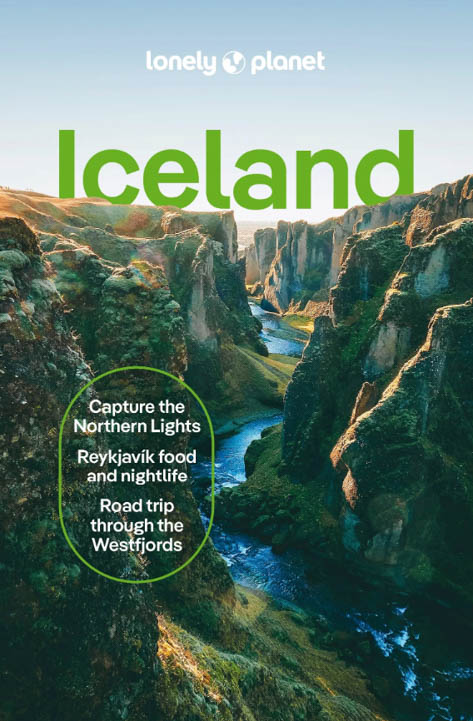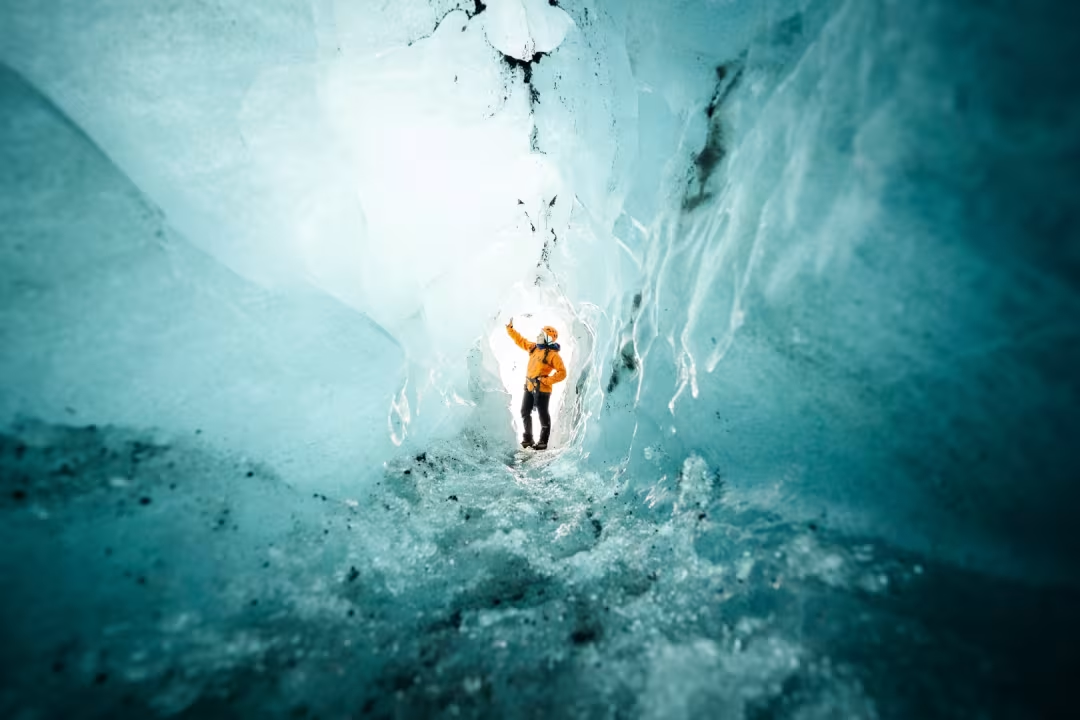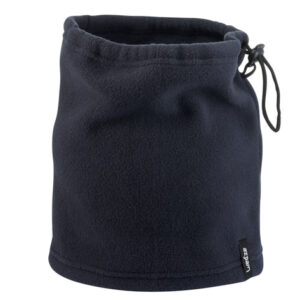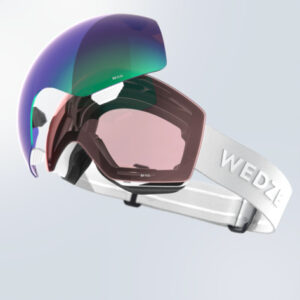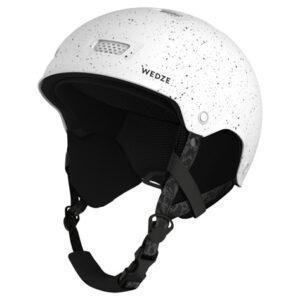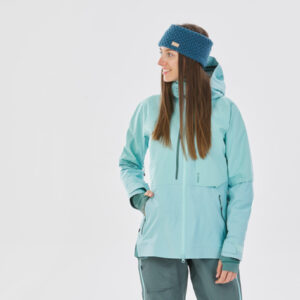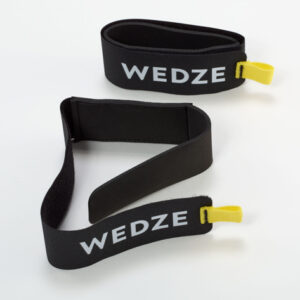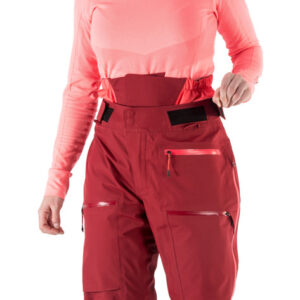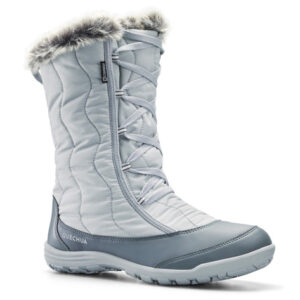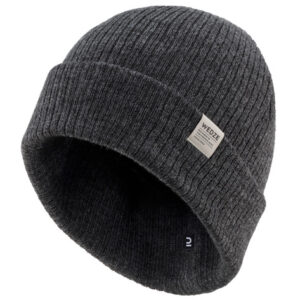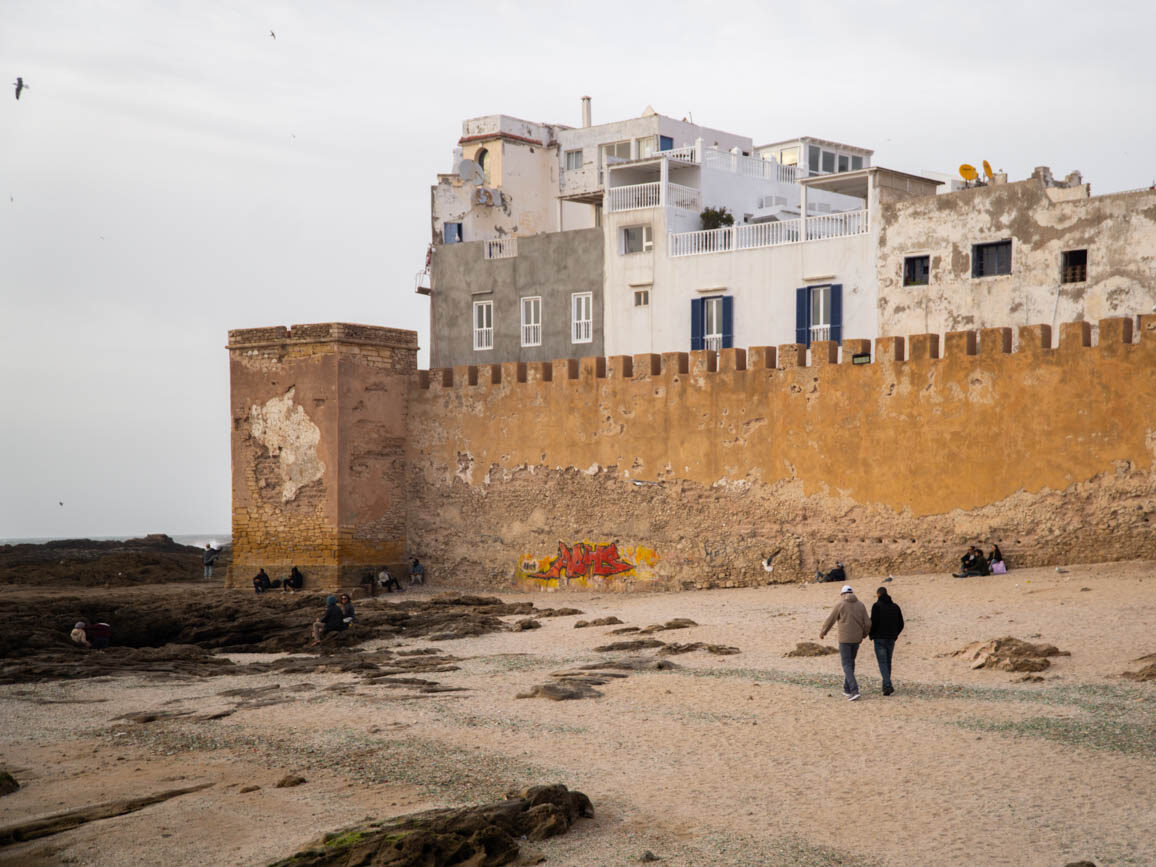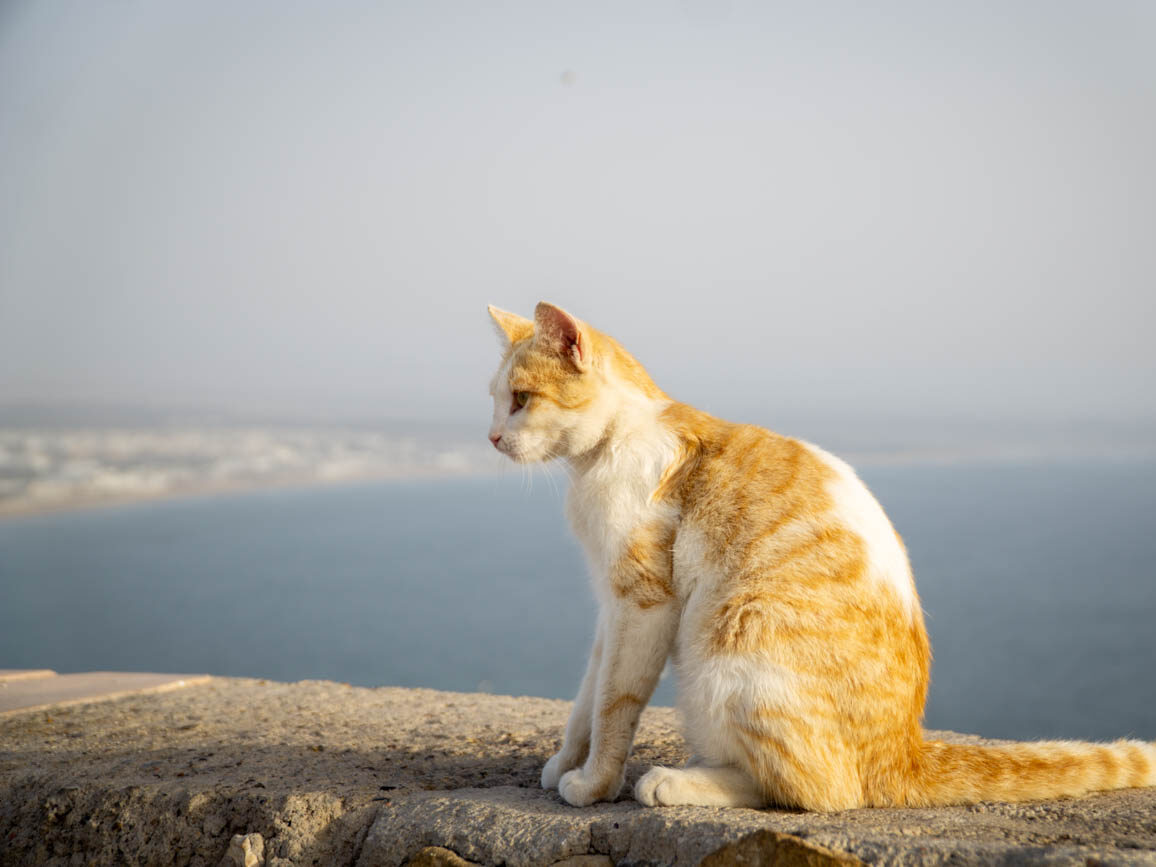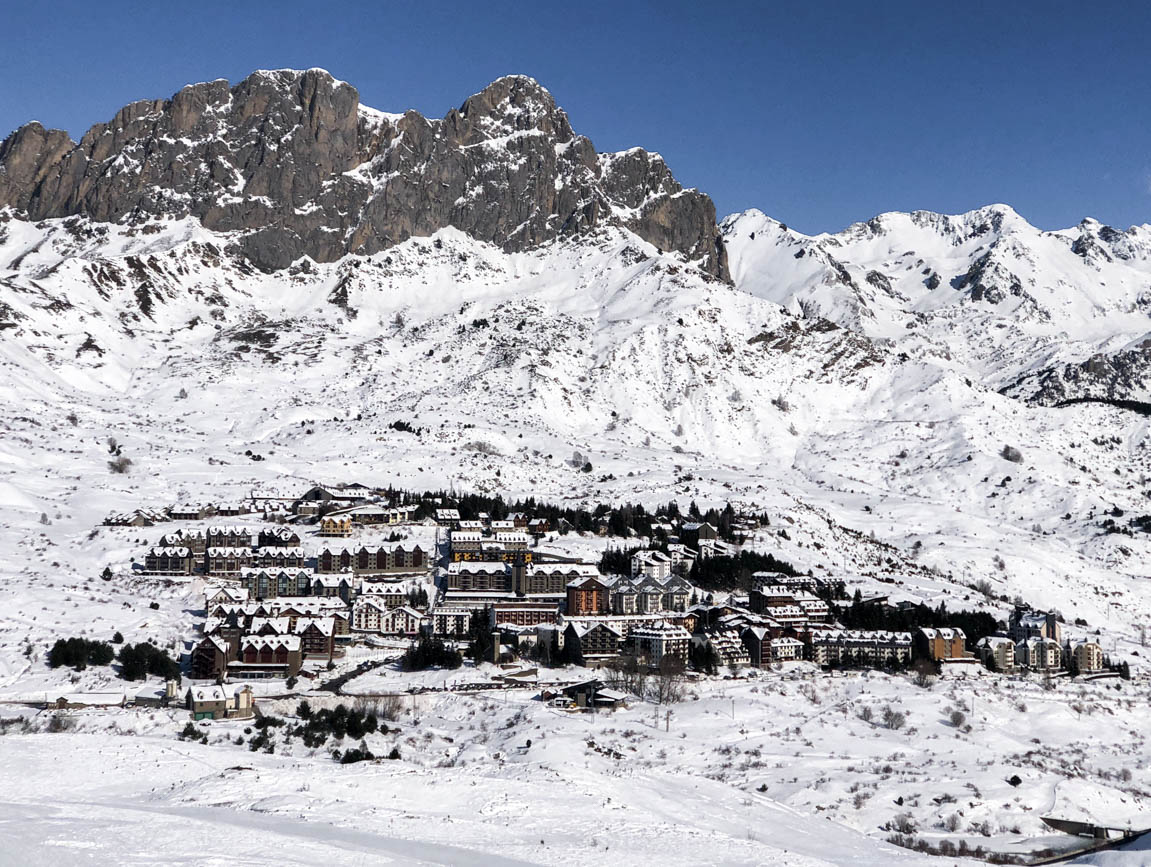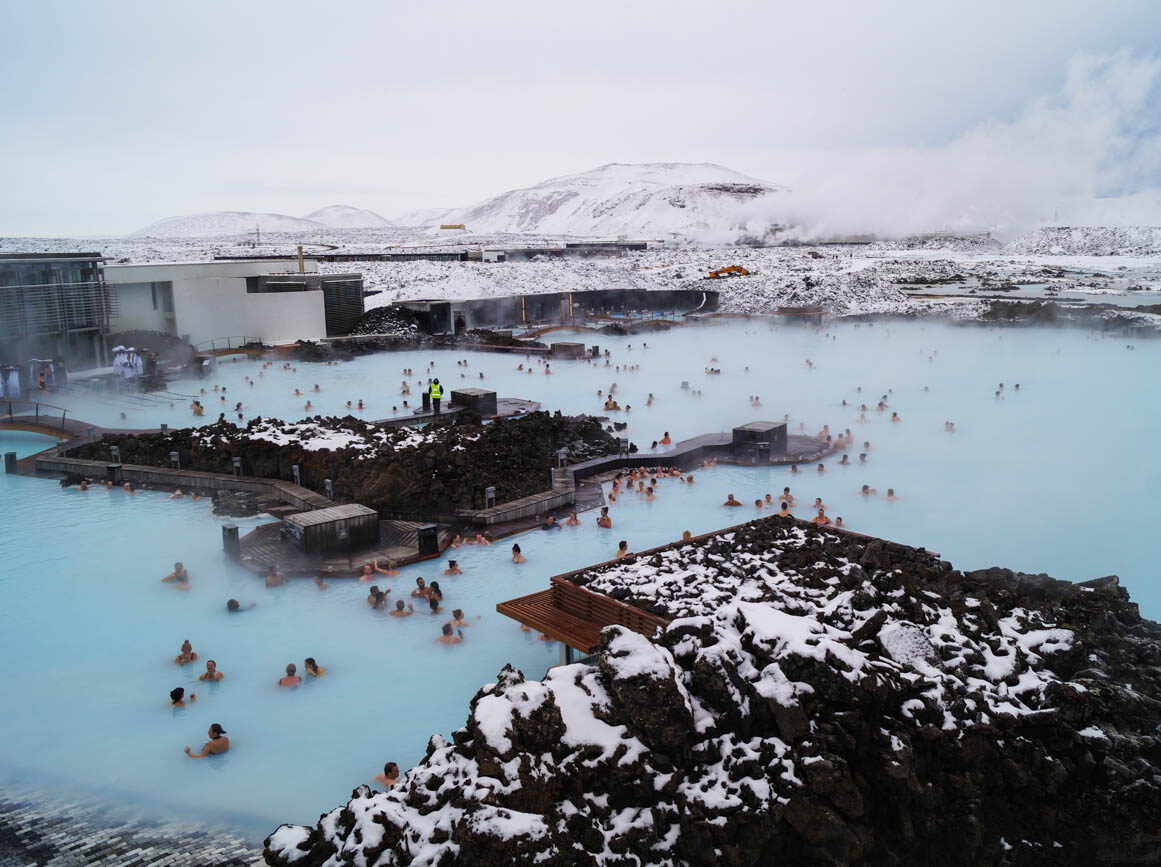
Are you traveling to Iceland soon and don’t know where to start? First, let me tell you that this remote Nordic country is worth the trip. If you’re a nature lover, this country has it all: from imposing glaciers and waterfalls to dangerous geysers and volcanic beaches, you’ll be amazed by the spectacular landscapes. In this post I’ll be sharing what to do in Iceland in four days, including a suggested itinerary and a map pinning all the locations. Ready to discover this fascinating land of ice and fire?
*
Disclaimer: please note that this post includes some affiliate links. This means that, at no additional cost for you, I earn a commission if you make a purchase. In case you have any question about the companies advertised here or my status as an affiliate, please do not hesitate to contact me.
*
During my trip, I used this Iceland travel guidebook by Lonely Planet to plan our stay and make the most out of it. I hope you´ll find it helpful too!
📍Suggested itinerary for 4 days in Iceland
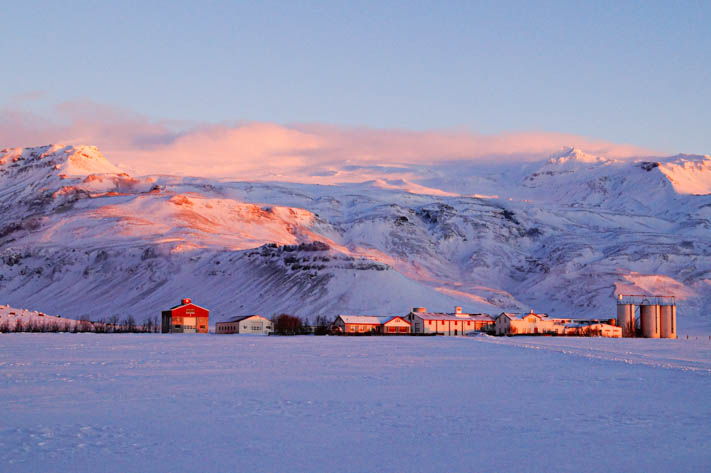
Based on my trip with friends from Washington DC to Iceland, this is what we planned for our four-day stay in the country.
Day 1
- Early arrival to Keflavik airport
- Blue Lagoon
- Reykjavik
- Northern Lights
Day 2
- Southern coast (Seljalandsfoss and Skógafoss waterfalls, Fjallsárlón glacier, Diamond beach)
- Reykjavik
Day 3
- Golden Circle (Faxi waterfall, Geysir, Gullfoss waterfall, Þingvellir National Park)
- Reykjavik
Day 4
- Reykjavik
- Flight back to the USA
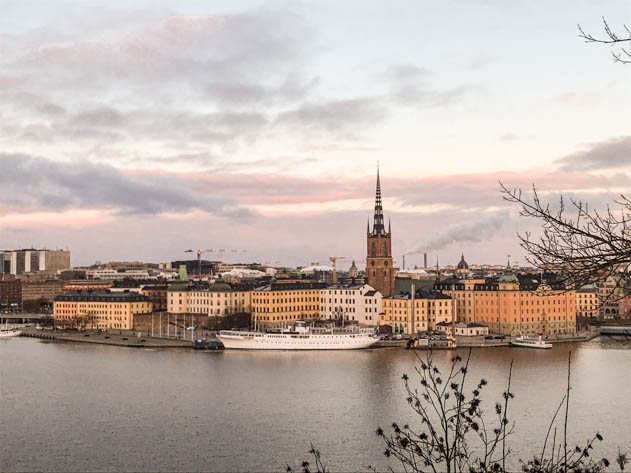
Check out all my resources on Nordic countries.
Denmark 🇩🇰: Denmark destination page, 5 cities in Denmark worth visiting, 10 things to do in Copenhagen (+ map)
Iceland 🇮🇸: Iceland destination page, What to do in Iceland in 4 days, 8 things to do in Iceland
Nordic countries: Nordic countries travel guide: top things to do in Denmark, Finland, Iceland, Norway and Sweden
Norway 🇳🇴: Norway destination page
Sweden 🇸🇪: Best things to do in Stockholm (travel guide + map), Sweden destination page, 10 series & films to travel while binge-watching
📸 What to do in Iceland (in 4 days)
To give you an idea of what to do in Iceland, here´s our 4-day itinerary exploring the land of ice and fire, including all the attractions we saw along the way.
🇮🇸 Reykjavik, the capital of Iceland
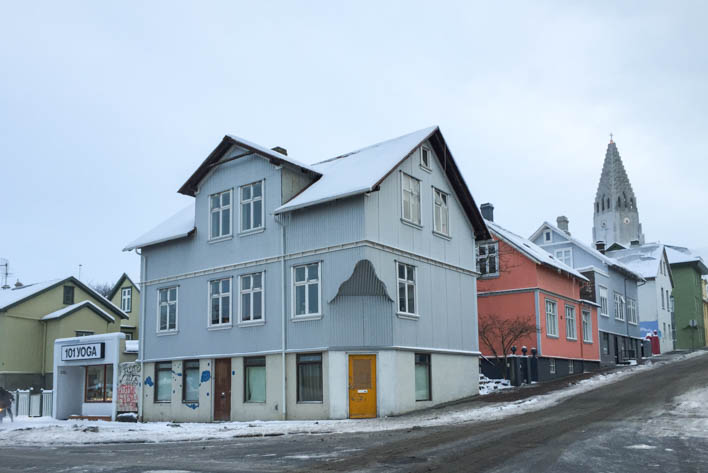
The capital city of Reykjavik, located on the western part of the country, is home to around 120.000 inhabitants (about a third of Iceland‘s total population).
You can easily walk around town and sightsee it in half a day. Below is a list with some of the best things to do in Reykjavik:
- Austurvöllur: square in the heart of Reykjavik encompassing many public buildings such as lþingishúsið (the Parliament House) or Dómkirkjan (the city’s oldest church).
- Hallgrímskirkja: this church is worth visiting because of its remarkable architecture. Make sure to head to the tower for stunning views.
- Harbor or old harbour: this was the birthplace of Reykjavik, the city having grown around it over time. In case you’re interested in whale or puffin watching, this is your port of departure. You can stop by the nearby indoor Kolaportið flea market too.
- Harpa: distinctive building housing a concert hall and a conference centre.
- Laugavegur: this is the main commercial street, around which most restaurants and shops concentrate.
- Last but not least, the National Museum of Iceland is a good way to learn about the country’s history and traditions.
🧖♀️ The Blue Lagoon
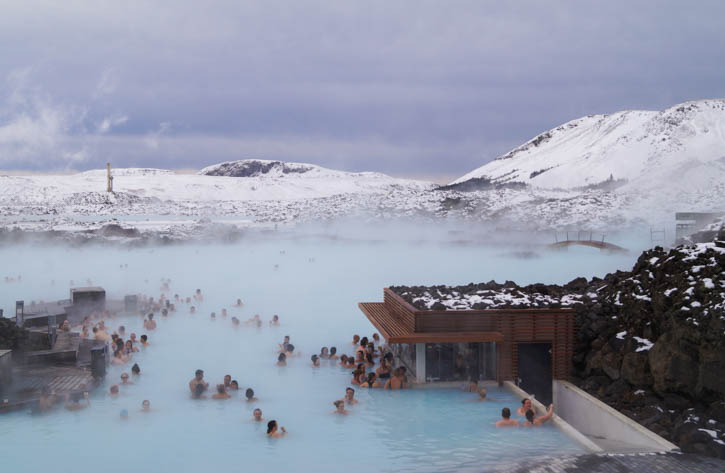
Located a short drive from Keflavik airport and 50 mins away from Reykjavik, the Blue Lagoon is one of the most popular destinations in any trip to Iceland. This natural wonder features geothermal seawater. In a country where the weather is usually freezing cold, enjoying these warm healing waters translates into pure happiness. In addition to the lagoon itself, the facilities include two hotels, various restaurants, a retreat spa and a shop to take home your favorite skincare products.
💎 The Icelandic southern coast
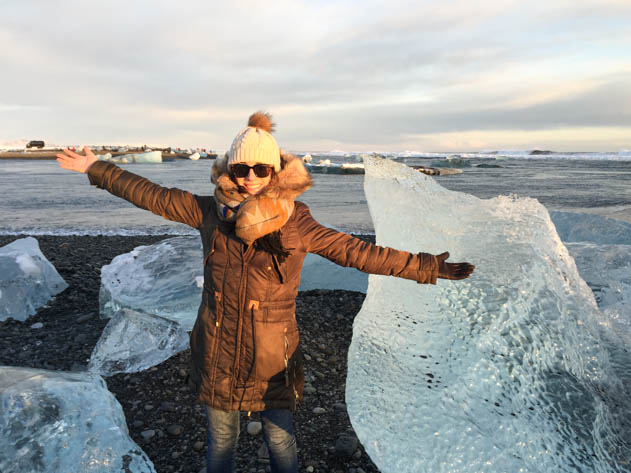
When we explored the southern coast of Iceland during our 4-day trip, these were the stops we did along the way:
- Seljalandsfoss and Skógafoss: imposing waterfalls with ice all around them.
- Hekla volcano, from where you can see the famous Eyjafjallajökull peak which erupted in 2010 causing major air travel disruptions.
- City of Vik: located in front of the southern seaside, this tiny town housing over 300 souls is one of the most popularly photographed areas in the country.
- Fjallsárlón glacier: this iceberg-filled lagoon next to Vatnajökull glacier is a natural wonder that has to be seen to be believed.
- Diamond beach: this was probably by far my highlight of the trip. Imagine a beach with black volcanic sand topped with huge ice formations coming from the neighboring Fjallsárlón glacier. Definitely a must!
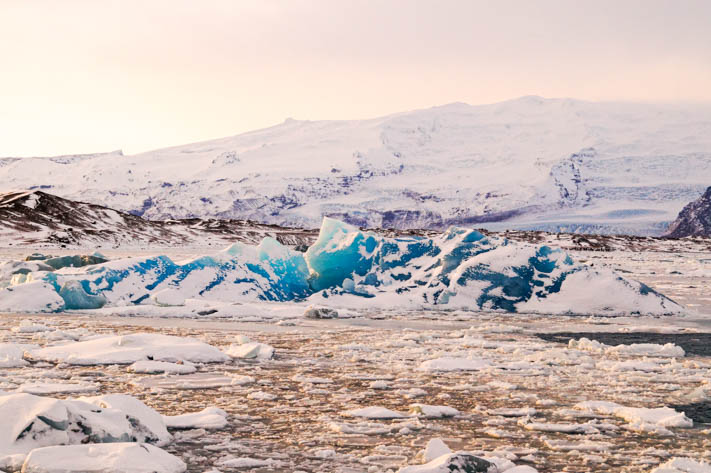
If you travel the same route, expect deserted snowy landscapes with no one in sight, except for the occasional tiny Icelandic horses.
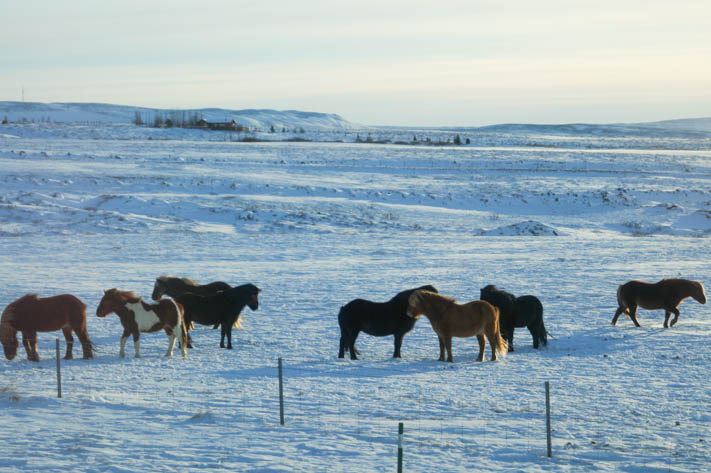
✨ The iconic Golden Circle
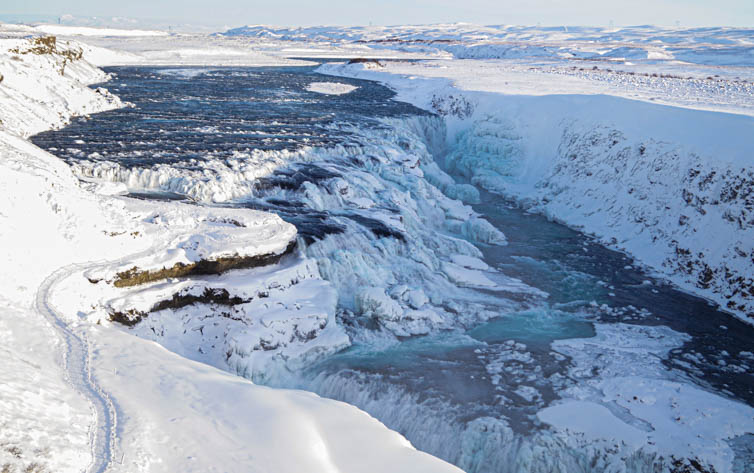
The famous Golden Circle is an itinerary of approximately 300 kilometers taking you around Iceland’s three most popular natural attractions: Þingvellir National Park, the Geysir geothermal area and Gullfoss waterfall.
During our circular route on the third day, here’s what we saw:
- Faxi and Gullfoss waterfalls: iconic waterfalls in the land of ice and fire.
- Geysir: this geothermal area is known for housing various geysirs, including the biggest one called Strokkur. If you can stand the sulfur smell and the cold, you should be able to see the geysir erupt every five minutes or so.
- Þingvellir National Park: this is one of the most important historical sites in Iceland. Back in the day, the ancient Viking Parliament used to gather here every year. What is more, the country’s independence was proclaimed in Pingvellir in 1944. On another note, the area is also known for its frequent earthquakes given the tectonic plates that lie underneath. The huge faults around the park actually form a canyon.
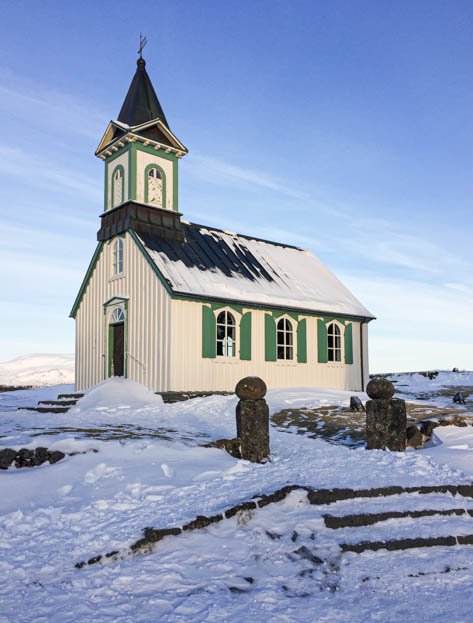
In addition to all the attractions mentioned above, these are some others you might want to consider including in your itinerary:
- Akureyri (the country’s second city after Reykjavik)
- Ásbyrgi
- Dettifoss
- Dimmuborgir Black Castles (lava formations)
- Jökulsá River
- Jökulsárgljúfur National Park
- Lake Myvatn (the Hverfjall volcano and the Grjótagjá cave are located nearby)
🟢 The Northern Lights
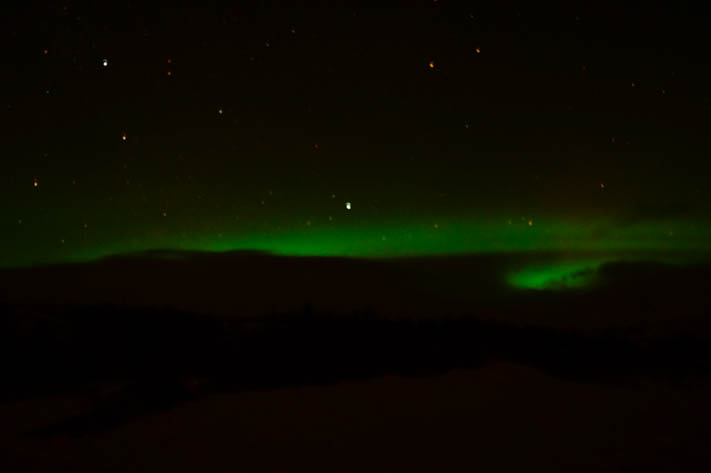
Iceland is a popular destination when it comes to chasing the Northern Lights. In our experience during this 4-day trip, we were lucky to (kind of) see them thanks to the tour organized by the hotel the first night we arrived. A lot depends on the weather conditions: since Aurora Borealis require dark and partly clear skies, a trustful resource is the Icelandic Met Office website.
Make sure to check the weather forecast in advance to ensure ideal conditions for capturing the Northern Lights.
If you’re into photography, pack your camera as you will obtain better quality shots than with a regular phone. I was actually surprised that the Northern Lights were difficult to see with a naked eye! (at least where we were, around the Þingvellir National Park).
Feeling adventurous? Check out these outdoor activities with Manawa in Iceland!
Blue Ice Caving Excursion in Vatnajökull Glacier from Jökulsárlón Glacier Lagoon
Helicopter flight over the newest volcanic eruption site
Private Day Tour of Golden Circle, near Reykjavik
Private Tour of Iceland’s South Coast departing from Reykjavik
Silfra Rift Snorkelling Excursion in Iceland
Snowmobile Tour on Langjokull Glacier in Gullfoss
Whale Watching Tour from Reykjavik
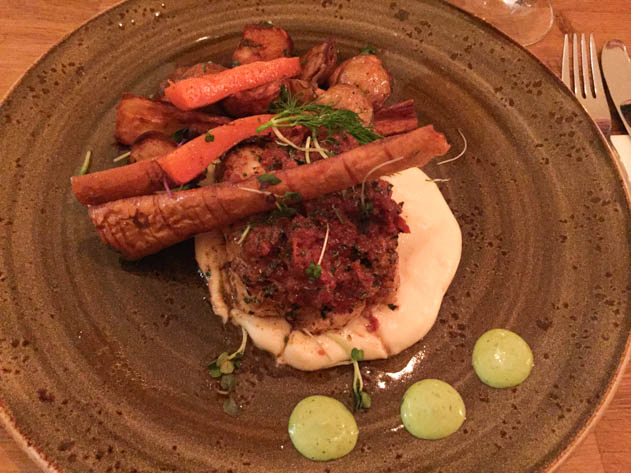
🍽 What and where to eat in Iceland
Icelandic cuisine
During our 4-day trip to Iceland, we got introduced to the country’s cuisine. Heads up, since Iceland is a remote island, food here is extremely expensive and Icelanders very much rely on imported goods. Naturally, fish ranks high on the list of Icelandic goodies you should taste (be it salmon, whale, trout, shark, puffin or dried fish – bitafiskur).
You might have also heard of skyr, a strained yogurt with much milder flavor. Lava salt or Icelandic chocolate are famous too.
If you’re feeling adventurous, you could also try Brennivin, better known as ‘Black Death schnapps’. This distilled liquor is made of fermented potatoes and flavored with caraway seeds. The Viking lager beer is another drink worth trying.
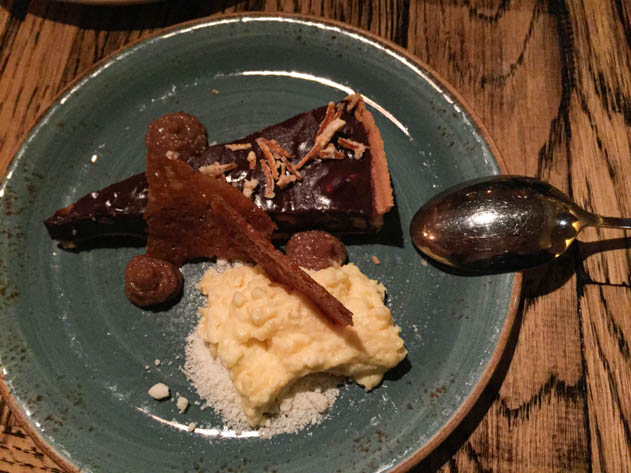
Recommended bars and restaurants in Iceland
My personal recommendation if you want to taste the Icelandic cuisine would be to head to Old Iceland. We went there following the hotel’s advice and we loved it so much, we actually dined there twice during our trip. This restaurant located on Reykjavik’s most commercial street (Laugavegur, 72) is a family-owned business. They highlight Icelandic produce by using local herbs and spices that they then incorporate into the dishes. We ordered a soup with lamb, potatoes and carrots along with various fish dishes (including ling with root vegetables and parsnip purée), all of which were excellent. The desserts (the Catalan cream and the skyr) were delicious too.
Another restaurant we went to was Kol (Skólavörðustígur, 40), where I really enjoyed the mushroom risotto, the duck and the chocolate tartare.
Last but not least, we had drinks at Kaldi Bar, located on Laugavegur street.
In addition to all the above, here’s a list of bars, cafes and restaurants that were recommended by friends and that we didn’t have enough time to try.
- Bars and cafeterias: American Bar, Den danske kro, English pub (Austurstraeti, 12), Islenski barinn, Rosenberg cafe (Klapparstigur), Lebowski bar (Laugavegur,20a).
- Restaurants: Dill (it received a Michelin star in 2017), hot dog truck in downtown Reykjavik, Kopar (near the harbor), Meze (Turkish), Reykjavik Fish (Trggvagata 8), Sushi Social (Japanese-Brazilian restaurant with an Icelandic menu).
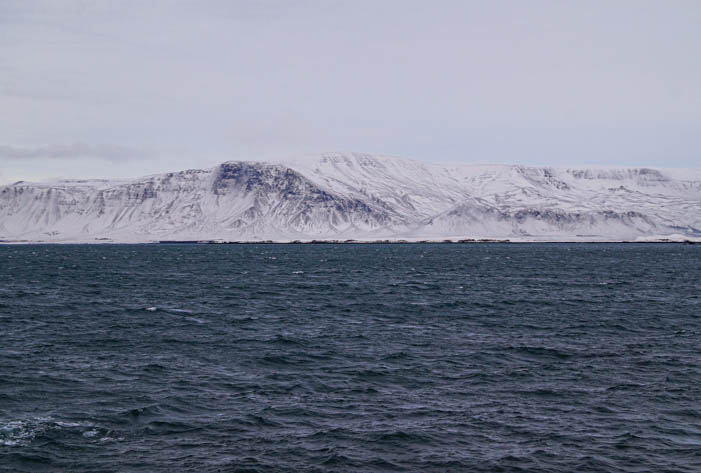
🛏 Where to stay in Iceland
Wondering where to stay in Iceland? During the four days we spent in the Icelandic capital of Reykjavik, we stayed at Skuggi hotel. Ideally located in the heart of the city and only steps away from the main street of Laugavegur, we couldn’t have asked for more.
Feel free to also check Airbnb or Booking for more accommodation options in the country.
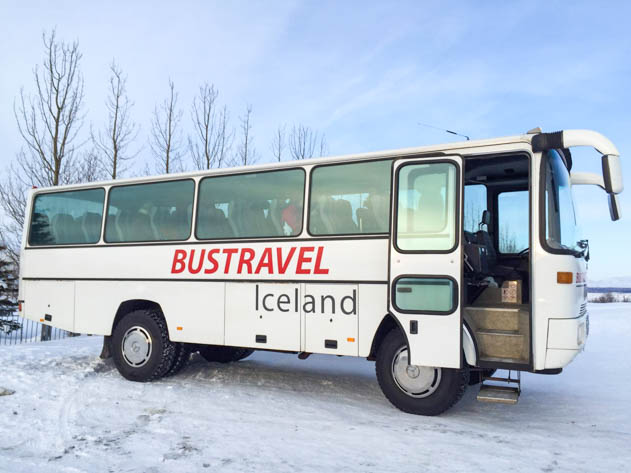
🚗 How to get around Iceland
In our case, we flew directly from Baltimore to Keflavik airport near Reykjavik with WOW Airlines.
Shortly upon arrival, we were picked up by a bus from Reykjavik Excursions, the company we had booked to get around Iceland. We had a local guide for the group, which was a great experience.
Other options to travel around the country include renting your own car or campervan. That being said, driving can be risky due to roads being under heavy snow for months. Please be careful!
For extra peace of mind when exploring Iceland, you can calculate how much you would pay for your health insurance with the SafetyWing widget below.
🗾 Map of my 4-day Iceland trip
In case you want to check our 4-day itinerary around Iceland, here’s the map with all the locations mentioned throughout this post. Feel free to save it and use it when planning your next trip.
📝 Tips for your trip to Iceland
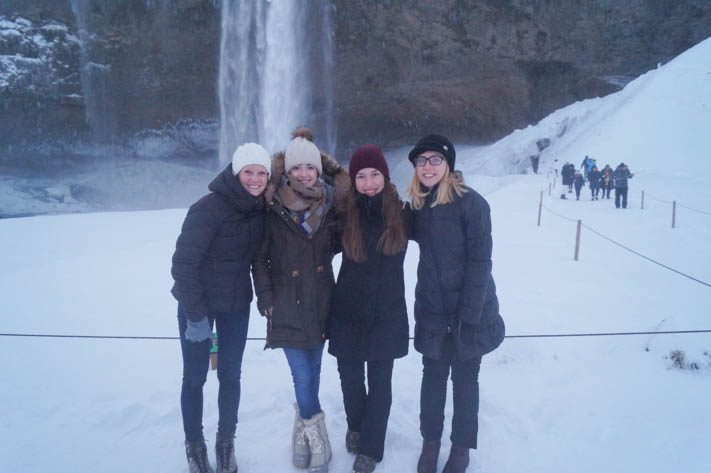
The weather is generally cold all year round, so pack accordingly
Iceland is a remote country in the middle of the North Atlantic Ocean, in between Norway and Greenland, so one thing is for sure: it’s cold, very cold most of the year, rarely raising beyond 15C in the summer months! Hence, beware of the cold and pack many layers of clothes. The weather in the country is notoriously variable, so you could easily get four seasons in just one hour.
Here are some of my favorite products when I’m heading to colder destinations:
Light hours
Given how far north Iceland is located, the country either gets too much daylight (24h during the month of June for instance) or barely at all (roughly four hours per day in the darker winter months). If possible, try to plan your activities while there’s daylight outdoors.
Depending on the season you’re visiting, the landscapes vary too: while you will encounter snow and ice everywhere during the winter time, landscapes might be greener around the summer. However, it might rain frequently.
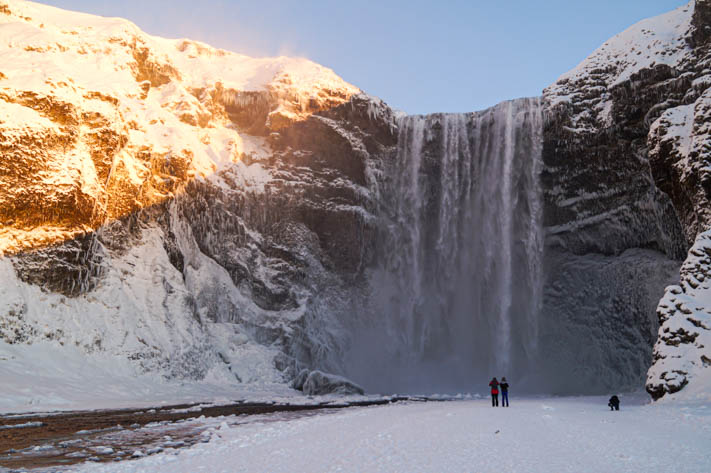
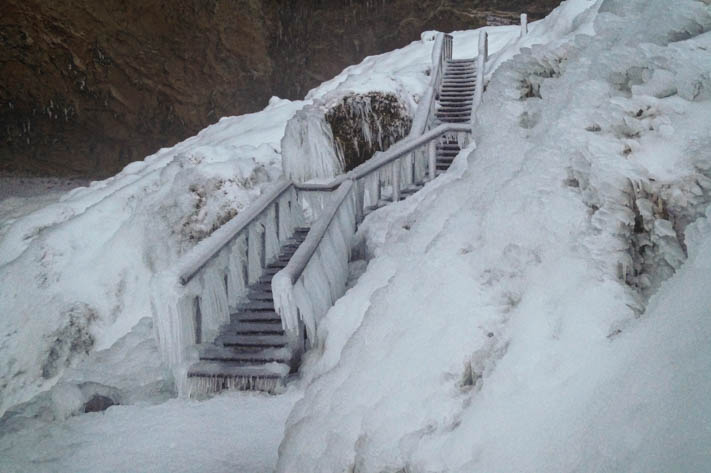
The Icelandic language
No offense, but good luck understanding Icelandic. 🙂 The language is hard to pronounce and words seem to have no end in sight (try Grjótagjá, Jökulsárgljúfurfor or Skólavörðustígur for example). Luckily for us foreigners, Icelanders speak great English, so you shouldn’t have problems getting around.
I trust this post about what to do in Iceland in 4 days proved useful. If you have any questions, please drop me a line below!
***
✈️ Curious to know where I’ll be traveling next? ✈️
Stay tuned by following me on social media (Facebook, Instagram, X) and subscribe to my newsletter for regular updates!
In the meantime, safe travels around the world!
***
| GET READY FOR YOUR NEXT TRIP! |
|---|
| Browse my travel resources page to plan your upcoming trip. |
| Feeling adventurous? Book any outdoor activities worldwide with Manawa! |
| Get medical or health insurance via SafetyWing for extra peace of mind. |
| Looking for sports equipment? Feel free to browse my Decathlon profile for inspiration. |
| Use the comprehensive and helpful Anaya Touring or Lonely Planet travel guidebooks to plan your trip. |
| Book memorable activities and tours around the world with Get Your Guide. |
| Use your Revolut Card to pay in local currency when you’re traveling abroad! |

